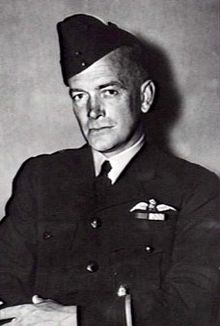Portal:History
The History Portal
History (derived from Ancient Greek ἱστορία (historía) 'inquiry; knowledge acquired by investigation') is the systematic study and documentation of the human past. History is an academic discipline which uses a narrative to describe, examine, question, and analyze past events, and investigate their patterns of cause and effect. Historians debate which narrative best explains an event, as well as the significance of different causes and effects. Historians debate the nature of history as an end in itself, and its usefulness in giving perspective on the problems of the present.
The period of events before the invention of writing systems is considered prehistory. "History" is an umbrella term comprising past events as well as the memory, discovery, collection, organization, presentation, and interpretation of these events. Historians seek knowledge of the past using historical sources such as written documents, oral accounts or traditional oral histories, art and material artifacts, and ecological markers.
Stories common to a particular culture, but not supported by external sources (such as the tales surrounding King Arthur), are usually classified as cultural heritage or legends. History differs from myth in that it is supported by verifiable evidence. However, ancient cultural influences have helped create variant interpretations of the nature of history, which have evolved over the centuries and continue to change today. The modern study of history is wide-ranging, and includes the study of specific regions and certain topical or thematic elements of historical investigation. History is taught as a part of primary and secondary education, and the academic study of history is a major discipline in universities.
Herodotus, a 5th-century BCE Greek historian, is often considered the "father of history", as one of the first historians in the Western tradition, though he has been criticized as the "father of lies". Along with his contemporary Thucydides, he helped form the foundations for the modern study of past events and societies. Their works continue to be read today, and the gap between the culture-focused Herodotus and the military-focused Thucydides remains a point of contention or approach in modern historical writing. In East Asia a state chronicle, the Spring and Autumn Annals, was reputed to date from as early as 722 BCE, though only 2nd-century BCE texts have survived. The title "father of history" has also been attributed, in their respective societies, to Sima Qian, Ibn Khaldun, and Kenneth Dike. (Full article...)
Featured picture
Did you know (auto generated)

- ... that the historic mansion Bulgur Palas in Istanbul hosted a birdhouse for hundreds of domestic canaries in one room during its ownership by the Ottoman Bank?
- ... that 104 miners were killed in the 1995 Vaal Reefs mining disaster when a locomotive fell on an elevator, making it history's deadliest elevator disaster?
- ... that the leak of the upcoming Grand Theft Auto game was described as one of the biggest leaks in video game history?
- ... that Reconstructing Womanhood by Hazel Carby, about the history of American black women writers, was said to be a "landmark study" and "groundbreaking"?
- ... that alongside a 7th-century BC Phoenician shipwreck, two additional wrecks from various historical periods were unearthed in Bajo de la Campana, situated off the coast of Cartagena, Spain?
- ... that Veto, inspired by the history of the Polish–Lithuanian Commonwealth, is considered to be the first Polish collectible card game?
Pyotr Ilyich Tchaikovsky (/tʃaɪˈkɒfski/ chy-KOF-skee; 7 May 1840 – 6 November 1893) was a Russian composer during the Romantic period. He was the first Russian composer whose music would make a lasting impression internationally. Tchaikovsky wrote some of the most popular concert and theatrical music in the current classical repertoire, including the ballets Swan Lake and The Nutcracker, the 1812 Overture, his First Piano Concerto, Violin Concerto, the Romeo and Juliet Overture-Fantasy, several symphonies, and the opera Eugene Onegin.
Although musically precocious, Tchaikovsky was educated for a career as a civil servant as there was little opportunity for a musical career in Russia at the time and no system of public music education. When an opportunity for such an education arose, he entered the nascent Saint Petersburg Conservatory, from which he graduated in 1865. The formal Western-oriented teaching that Tchaikovsky received there set him apart from composers of the contemporary nationalist movement embodied by the Russian composers of The Five with whom his professional relationship was mixed. (Full article...)
On this day
- 1796 – French Revolutionary Wars: French forces won the Battle of Arcole in a manoeuvre to cut the Austrians' line of retreat.
- 1894 – H. H. Holmes (pictured), one of the first modern serial killers, was arrested in Boston after killing at least nine people.
- 1968 – NBC controversially cut away from an American football game between the Oakland Raiders and New York Jets to broadcast Heidi, causing viewers in the Eastern United States to miss the game's dramatic ending.
- 1989 – Walt Disney Pictures released The Little Mermaid to theatres, beginning the Disney Renaissance.
- 2009 – Administrators at the University of East Anglia's Climatic Research Unit discovered that their servers had been hacked, and thousands of emails and files on climate change had been stolen.
- Nikephoros Melissenos (d. 1104)
- Agnes of Jesus (b. 1602)
- Maria Antonia Ferdinanda of Spain (b. 1729)
- Nicolas Appert (b. 1749)
Selected quote
I hate this fast growing tendency to chain men to machines in big factories and deprive them of all joy in their efforts — the plan will lead to cheap men and cheap products.
— Richard Wagner, 19th century German composer
Related portals
More Did you know...
- ... that the Soviet Tupolev Tu-142 (pictured) maritime patrol aircraft was developed in response to the American UGM-27 Polaris submarine-launched ballistic missile?
- ... that Harry Powers said that watching his victims die was more fun than a brothel?
- ... that the effort put forth by the subject of Miró's 1937 Naked woman climbing a staircase and her heavy limbs are thought to reflect the tragedy of the Spanish Civil War?
- ... that 49% of German military losses happened in the last 10 months of the Second World War in Europe?
- ... that Thomas Edison lost a fortune in his ore-milling company, but "had a hell of a good time spending it"?
- ... that American McCaull Comic Opera Company actress May Yohé, once the owner of the Hope Diamond, died poor?
- ... that Egyptian political cartoonist Ahmad Nady took part in the 2011 Egyptian revolution, drawing cartoons while he demonstrated?
- ... that finds unearthed at the Israelite Tower in Jerusalem's Jewish Quarter attest to the Babylonian sack of the city in 586 BCE?
Topics
Categories

History • By period • By region • By topic • By ethnic group • Historiography • Archaeology • Books • Maps • Images • Magazines • Organizations • Fictional • Museums • Pseudohistory • Stubs • Timelines • Chronology • People • Wikipedia historians
WikiProjects
![]() WikiProject History •
Ancient Near East • Australian History • Classical Greece and Rome • Dacia • Former countries • History of Canada • Chinese history • European history • Heraldry and vexillology • Indian history • Jewish history • Medieval Scotland • Mesoamerica • Military history • Middle Ages • History of Science
WikiProject History •
Ancient Near East • Australian History • Classical Greece and Rome • Dacia • Former countries • History of Canada • Chinese history • European history • Heraldry and vexillology • Indian history • Jewish history • Medieval Scotland • Mesoamerica • Military history • Middle Ages • History of Science
WikiProject Time • Days of the Year • Years
WikiProject Biography • Composers • Political figures • Saints • United States Presidents
Things you can do
 |
Here are some tasks awaiting attention:
|
Associated Wikimedia
The following Wikimedia Foundation sister projects provide more on this subject:
-
Commons
Free media repository -
Wikibooks
Free textbooks and manuals -
Wikidata
Free knowledge base -
Wikinews
Free-content news -
Wikiquote
Collection of quotations -
Wikisource
Free-content library -
Wikiversity
Free learning tools -
Wiktionary
Dictionary and thesaurus






















































